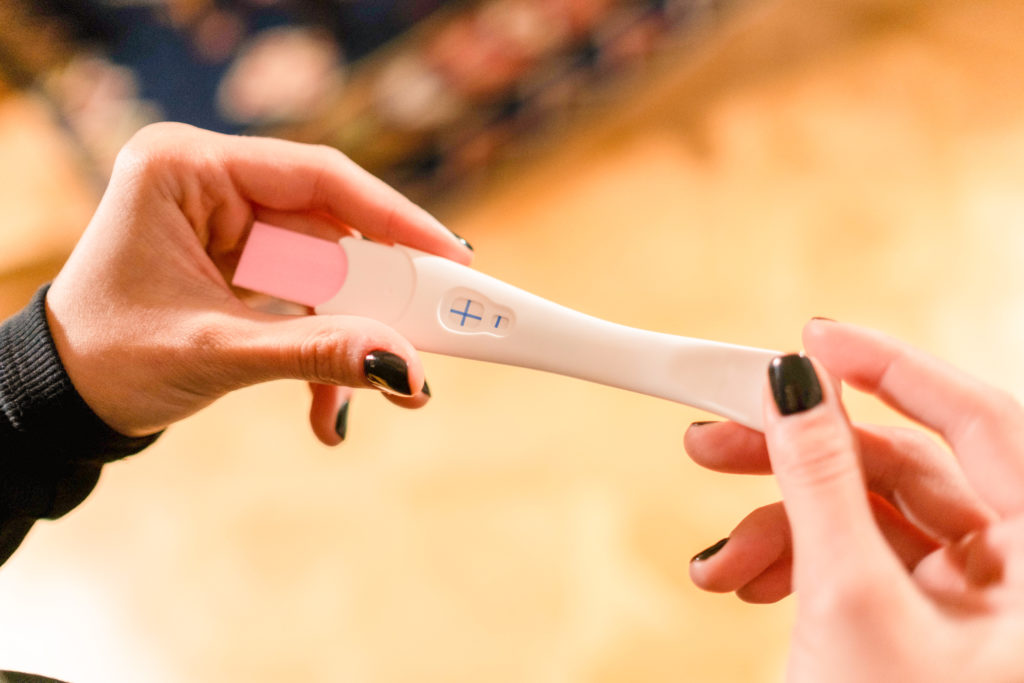Are you doubting the accuracy of your pregnancy test results? Home pregnancy tests are convenient and can quickly be administered, but there are a few variances that could give you an incorrect result.
- A false positive pregnancy test means the test says you are pregnant, but you are NOT. [1]
- A false negative pregnancy test means the test says you are not pregnant, but you ARE.
- A faint line pregnancy test means you may be pregnant, but a more sensitive/accurate test is needed because it may be very early in the pregnancy.
What causes inaccurate pregnancy test results?
- Insensitive Pregnancy Test
Not all home pregnancy tests are created equal, even if the packaging claims 99% accurate results. The manufacturer isn’t telling you that a test is more or less effective depending on how many days past a missed period you are. Pregnancy tests detect the hCG hormone levels in your body – the hormone that your cells secrete to become the placenta. Your hCG levels will increase rapidly after implantation and continue doubling every 2-3 days for the next 10 weeks. [2] Thus, in the early stages of your pregnancy, your hCG levels are at their lowest – and only the most sensitive pregnancy test can accurately detect the first signs of pregnancy. The most sensitive pregnancy test, and most effective at accurately detecting pregnancy earlier, would be one that detects hCG levels at the lowest mIU/ml (in milli-International Units per milliliter of urine). [3] So, a pregnancy test that is advertised as “20 lowest hCG detected”, is more accurate than one advertising 50. If a pregnancy test is showing faint positive lines, this could be the result of a pregnancy test being unable to detect lower hCG levels because it is very early in the pregnancy. Or, it could be a more sensitive pregnancy test triggering false positive lines because of other factors, such as the below. - Improper Testing
Following the instructions exactly is important for an accurate result reading. Set a timer before reading the results – don’t guess at the elapsed time since you took the test. Being off by 30 seconds could give you a false negative, false positive, or faint line results. Know that testing at least a week after a missed period will provide more accurate results, although this will greatly depend on the lowest hCG levels your pregnancy test can detect. Taking a test in the morning is also helpful, as your urine is more concentrated. Keep in mind that consuming large amounts of water before taking a pregnancy test can alter your results. - Medication Interference
This is not something you can easily determine without consulting your doctor, but keep in mind it could potentially influence a false positive or negative. Medications that could affect your test include benzodiazepines, phenothiazine, promethazine and others. Urine contaminated with blood or protein can also trigger a false positive. A laboratory-quality test may be your best option for accurate results. - Medical Conditions
Although very uncommon, it’s still possible to get a false positive because of hCG-producing medical conditions. These could include choriocarcinoma (rare form of cancer usually found in the uterus), breast, ovarian or testicular cancer. - Defective Pregnancy Test
It’s not common, but it’s not out of the question either. Make sure your home pregnancy test is not expired before using. And if you question the results, even on a non-expired test, it’s okay. Even with the highest quality control, there can be a defective test here or there. Try taking another test from a different batch, or reach out to a local clinic for a laboratory-quality pregnancy test.
False positive and negative results (and faint lines) are not common, but they do happen. If you are unsure of your results, getting a laboratory-quality test is recommended.
If it has been at least 30 days since the first day of your last period, you should consider a lab-quality pregnancy test from a health clinic. At Blue Ridge Women’s Center, our medical staff provide free pregnancy testing. Our lab-quality urine tests can detect pregnancy as early as 7-14 days after conception.
Sources
[1] http://www.babymed.com/pregnancy-testing/false-positive-pregnancy-test-result
[2] http://www.webmd.com/baby/guide/pregnancy-tests#1
[3] http://www.parentingweekly.com/preconception/preconception_information/home_pregnancy_test_accuracy.htm

